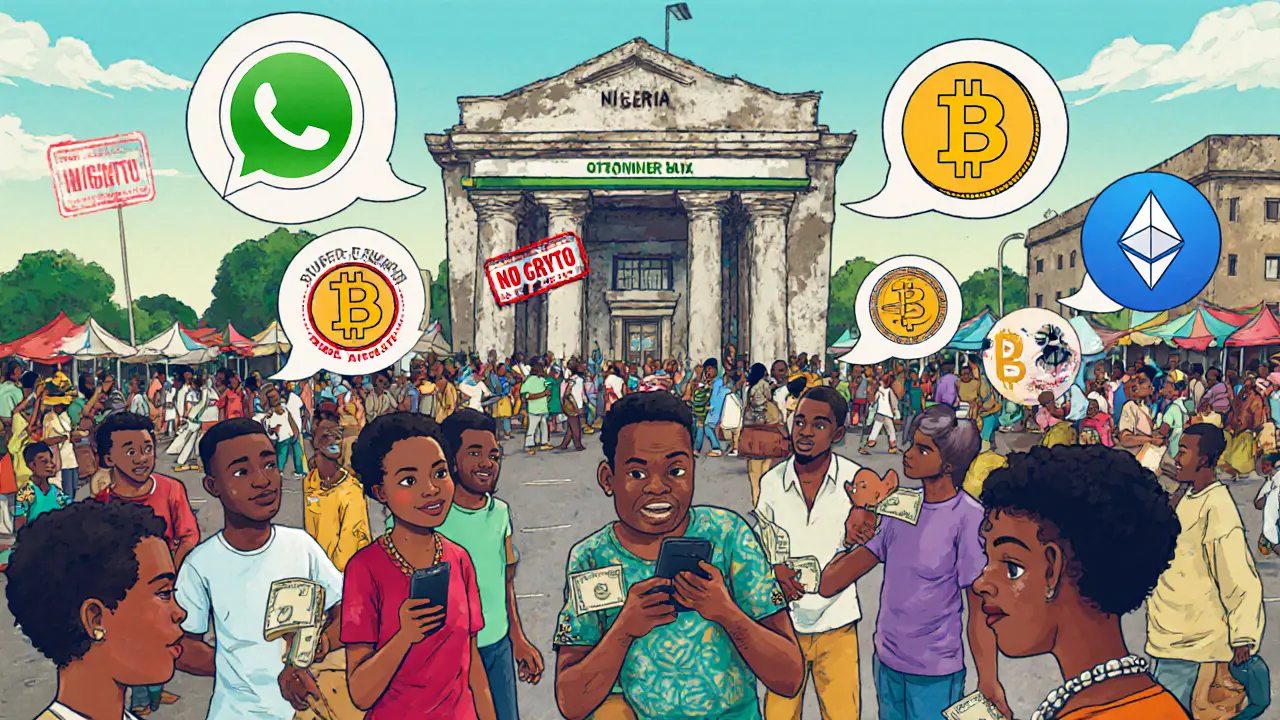Underground Crypto Economy: How Crypto Thrives Beyond the Law
When governments crack down on crypto, the market doesn’t disappear—it goes underground crypto economy, a hidden network of peer-to-peer trading that operates outside official exchanges and regulatory oversight. Also known as black market crypto, this system keeps digital assets flowing even in countries where owning Bitcoin is illegal. It’s not theory. It’s happening right now in Algeria, Iran, Venezuela, and beyond, where people risk fines or jail just to buy stablecoins with cash in parking lots or trade via encrypted apps.
This isn’t just about avoiding taxes. In places with unstable currencies or blocked banking systems, the crypto sanctions, government-imposed restrictions that cut off access to global financial networks. Also known as financial isolation, it forces people to find alternatives. The P2P crypto, direct person-to-person trading without intermediaries like exchanges or banks. Also known as peer-to-peer digital asset exchange, it is the backbone of this hidden economy. No KYC. No identity checks. Just cash, WhatsApp, Telegram, and local buyers who trust their neighbors more than regulators.
Algeria’s 2025 crypto ban didn’t stop trading—it made it smarter. People now use local fiat markets disguised as freelance payment platforms. Stablecoins like USDT move through informal networks, often swapped for goods, phone credit, or even food. In sanctioned countries, traders bypass OFAC restrictions by using non-KYC platforms like Nonkyc.io or routing trades through third-party intermediaries. These aren’t tech wizards. They’re teachers, mechanics, and farmers who just want to protect their savings from inflation or seizure.
The underground crypto economy doesn’t need flashy apps or big marketing. It runs on trust, local networks, and the simple truth: if people need access to money, they’ll find a way. This isn’t a glitch in the system. It’s a feature of decentralized tech. Governments can ban exchanges, but they can’t ban human ingenuity.
What follows is a collection of real-world cases, deep dives into how these hidden networks operate, and warnings about the risks and rewards of trading outside the system. You’ll see how people in banned countries keep crypto alive, how scams prey on desperation, and why some of the most active crypto markets today aren’t on any official ledger.
How Nigeria's Underground Crypto Economy Thrived During the Ban
Despite a 2021 banking ban, Nigeria’s underground crypto economy surged, with millions using P2P platforms to trade Bitcoin and stablecoins. Learn how people bypassed restrictions-and why the ban backfired.
read more

